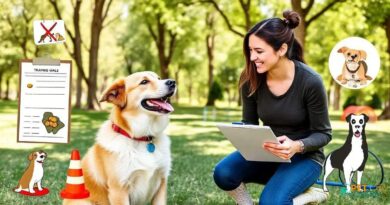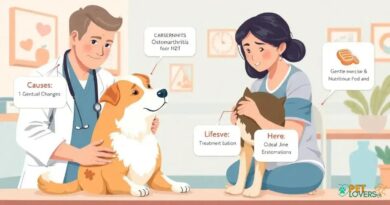O que é Responsabilidade
What is Responsibility?
Responsibility, in the context of dog ownership, refers to the obligation that pet owners have towards their canine companions. This encompasses a wide range of duties, including providing proper care, ensuring safety, and promoting the well-being of the dog. A responsible dog owner understands that bringing a dog into their home is a long-term commitment that requires time, effort, and resources.
Understanding the Commitment
Owning a dog is not just about companionship; it is a significant responsibility that lasts for the lifetime of the pet. This commitment includes regular veterinary check-ups, vaccinations, and preventive care to keep the dog healthy. Additionally, responsible owners must be prepared for the financial implications of dog ownership, which can include food, grooming, and emergency medical expenses.
Providing Proper Nutrition
One of the key aspects of responsibility is ensuring that your dog receives a balanced and nutritious diet. This means selecting high-quality dog food that meets their specific dietary needs based on age, size, and health conditions. Responsible owners also avoid feeding their dogs harmful human foods and are aware of the importance of maintaining a healthy weight to prevent obesity-related health issues.
Regular Exercise and Mental Stimulation
Dogs require regular physical activity to stay healthy and happy. Responsible owners make it a priority to provide daily exercise through walks, playtime, and other activities that stimulate both the body and mind. Mental stimulation is equally important, as it helps prevent boredom and behavioral issues. Engaging in training sessions, puzzle toys, and interactive games can enhance a dog’s mental well-being.
Socialization and Training
Socialization is a crucial part of responsible dog ownership. Exposing your dog to various environments, people, and other animals helps them develop into well-adjusted adults. Additionally, training is essential for teaching dogs basic commands and good manners. Responsible owners invest time in training their dogs, which not only strengthens the bond between them but also ensures the safety of the dog and others.
Health and Wellness Monitoring
Being a responsible dog owner means being vigilant about your dog’s health. This includes recognizing signs of illness, maintaining a regular schedule for veterinary visits, and adhering to vaccination protocols. Responsible owners also take preventive measures against parasites and are aware of the importance of dental care, which is often overlooked but vital for a dog’s overall health.
Creating a Safe Environment
Safety is a paramount concern for responsible dog owners. This involves creating a secure living space where the dog can roam freely without the risk of injury. Owners should ensure that their homes are free of hazards, such as toxic plants, small objects that can be swallowed, and unsecured trash. Additionally, responsible owners use leashes and harnesses during walks to prevent accidents and ensure their dog’s safety in public spaces.
Understanding Legal Responsibilities
Dog ownership comes with legal responsibilities that vary by location. Responsible owners familiarize themselves with local laws regarding pet ownership, including licensing, leash laws, and breed-specific regulations. Understanding these laws helps prevent legal issues and ensures that the owner is compliant with community standards, promoting a harmonious relationship with neighbors.
Being a Role Model in the Community
Responsible dog owners also play a vital role in their communities. By demonstrating good practices, such as cleaning up after their dogs and ensuring their pets are well-behaved in public, they set a positive example for other dog owners. Engaging with local dog clubs or participating in community events can further promote responsible pet ownership and foster a sense of community among dog lovers.



